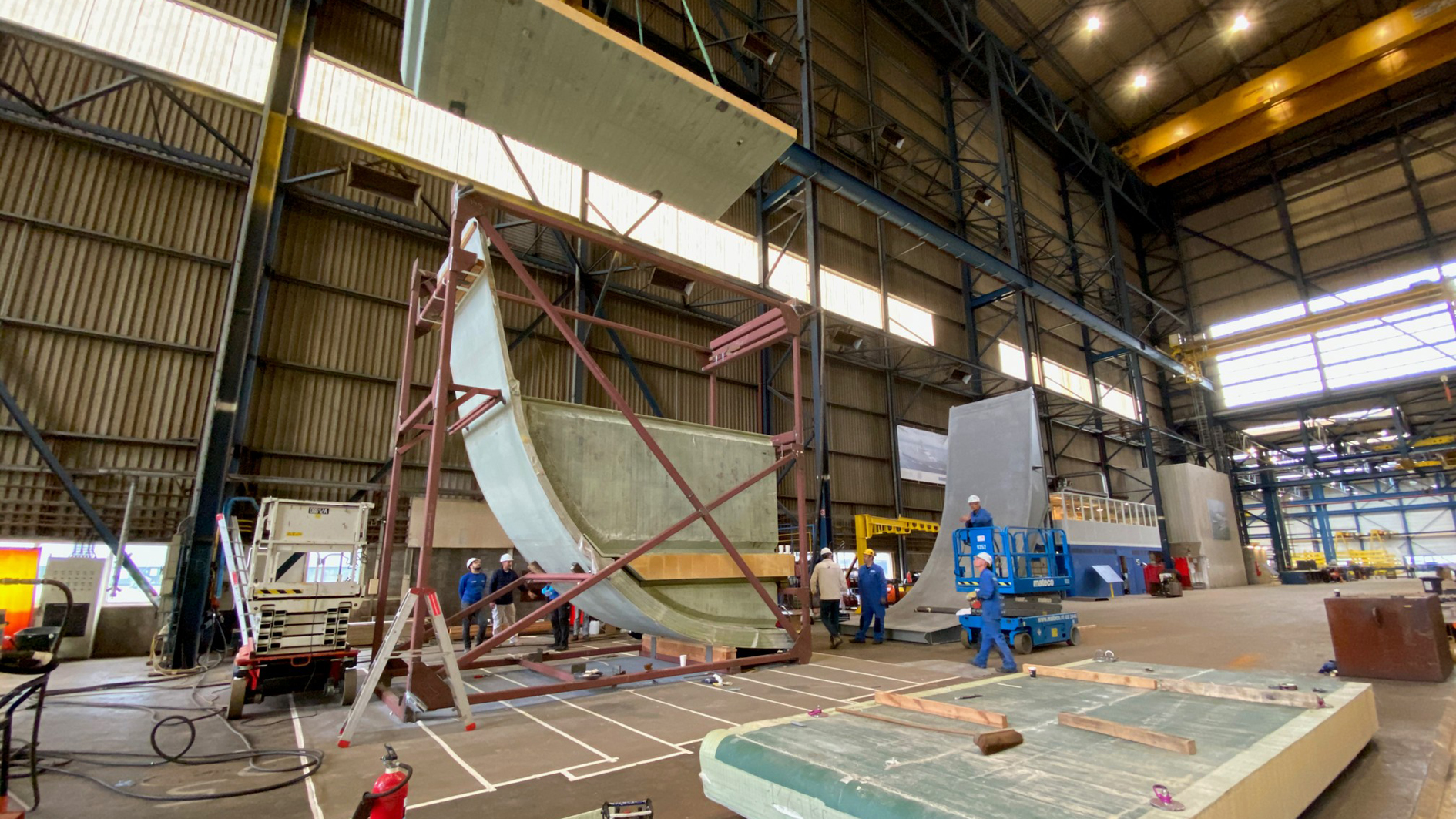Composite ship construction takes another step forward

The RAMSSES project has received funding from the European Union’s Horizon 2020 research and innovation programme under grant agreement No 723246 (Source: Damen)
A full-scale composite ship’s hull section, developed over three years at Damen Schelde Naval Shipbuilding (DSNS) in Vlissingen-East, has been unveiled by partners in the RAMSSES project. The so-called Custom Made Hull for Offshore Vessel is one of 13 demonstrators that will be produced in RAMSSES, which stands for the Realisation and Demonstration of Advanced Material Solutions for Sustainable and Efficient Ships.
The use of composite materials is thought likely to provide a significant boost to shipping’s moves to decarbonise both its production processes and its operation. The RAMSSES partners are working towards composite vessels that could weigh 40% less than a steel equivalent. Such a vessel could therefore offer a reduction in global warming potential, aerosol formation potential, eutrophication potential, acidification potential and fuel consumption by up to 25%, the partners said.
Today’s construction regulations on composite vessel construction only cover ships up to 500 tonnes, corresponding approximately to 25m-long units. However, the RAMSSES partners aim to scale up the composite technology, enabling the design and production of vessels up to 85m-long in full compliance with Safety of Life at Sea and class regulations.
Marcel Elenbaas, senior engineer at Research & Technology Support DSNS, commented: “The work we are doing here is important for the future of shipping. Sustainability is a major focus in industry right now and shipbuilding is no exception. The use of composites for larger ships has significant consequences for the entire design of the ships. If it is lighter, a vessel uses less fuel and produces lower emissions. The vessel also requires smaller engines, which means more space for additional systems, making for a more versatile platform. And, of course, composites require considerably less maintenance than a steel vessel. With RAMSSES, we have the opportunity to demonstrate the effectiveness and viability of large-scale composite shipbuilding.”
Other partners in the RAMSSES project include Damen Shipyards Gorinchem, Airborne UK, the InfraCore Company, resin developer Evonik, research organisation TNO, Bureau Veritas, the Research Institutes of Sweden, and Netherlands Maritime Technology Foundation. The project has received funding from the European Union’s Horizon 2020 research and innovation programme.
